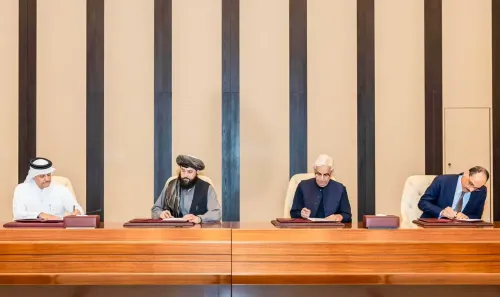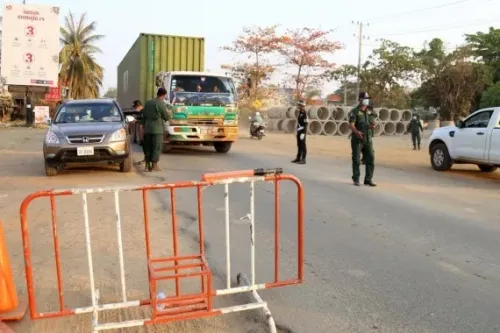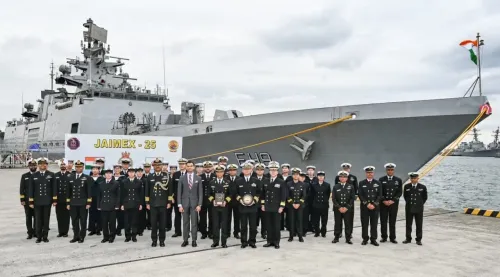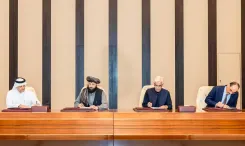Will US Visa Restrictions Deter Ties with Central America?
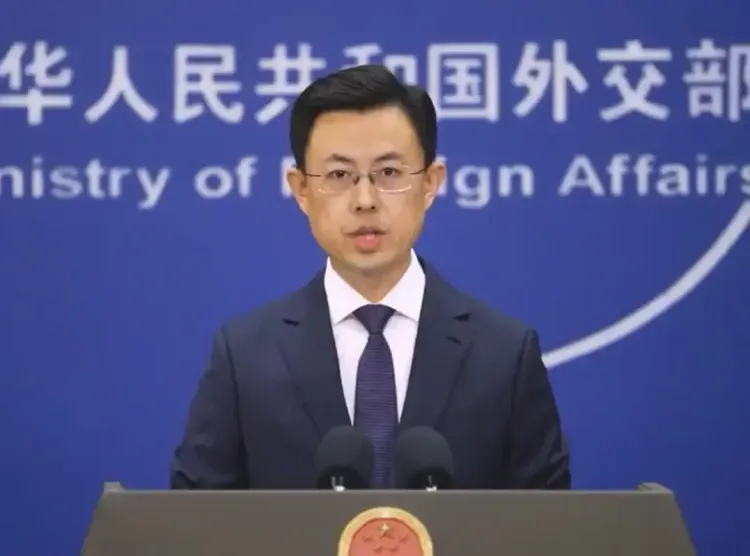
Synopsis
Key Takeaways
- China's commitment to Central American partnerships remains strong despite US sanctions.
- The US's visa restrictions are viewed as illegal actions against sovereign nations.
- The tensions reflect deeper geopolitical struggles and the influence of external powers.
- China promotes development and mutual respect in international relations.
- Accusations against Cuba's medical programs are contested and deny by Havana.
Beijing, Oct 21 (NationPress) Using visa restrictions as a tool will not intimidate the rational, nor will it hinder the strengthening ties between China and Central American nations, asserted Chinese Foreign Ministry spokesperson Guo Jiakun on Tuesday.
Guo delivered these comments during a routine press briefing when queried about the US's recent announcement regarding visa limitations on citizens from Central American countries and their immediate family members involved in partnerships with the Communist Party of China, which allegedly "undermine the rule of law in Central America."
He highlighted that China has expressed serious concerns to the United States regarding these visa restrictions, stating that the US is engaging in illegal activities masquerading as upholding the 'rule of law' by imposing unilateral sanctions aimed at politically repressing and economically coercing regional nations and individuals.
According to Guo, the United States is prioritizing its domestic laws over international law and obligations, thus jeopardizing the legitimate rights and interests of other nations. This conduct seriously violates the principles of sovereign equality and non-interference in the internal affairs of states, ultimately disrupting the international order, as reported by Xinhua news agency.
He characterized the US's accusatory stance towards Central American nations' interactions and collaborations with China as entirely unfounded and indicative of its total disregard for these nations.
This situation once again showcases the US's propensity for bullying and reveals the deep-seated arrogance and bias of certain politicians, Guo remarked.
China will consistently remain a reliable friend and partner to Central American countries, collaborating with them to foster development and revitalization, and jointly establishing a China-Latin America community with a shared future, he concluded.
In June, US Secretary of State Marco Rubio announced that several unnamed officials from Central American governments would face visa restrictions due to their connections with Cuba's medical mission programs.
These officials were linked to programs that allegedly involve forced labor and exploitation of Cuban workers, according to Rubio. "These measures promote accountability for those who endorse and sustain these exploitative practices," he stated.
Havana has categorically denied these allegations for decades. The visa restrictions also extend to the families of these officials.

